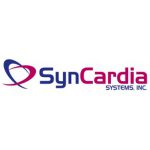 The FDA today said its recall of a select number of SynCardia Systems Total Artificial Heart Freedom driver is Class I.
The FDA today said its recall of a select number of SynCardia Systems Total Artificial Heart Freedom driver is Class I.
A Class I recall is the most serious type of recall issued by the federal watchdog, which indicates “there is a reasonable probability that use of these products will cause serious adverse health consequences or death.”
The Syncardia Total Artificial Heart is a mechanical heart replacement implanted into the chest to replace the function of the left and right ventricles. The Freedom Driver system is attached to the pump and operates and monitors the device, the FDA said.
The recall is over an issue with a specific part of the Freedom Driver mechanism that may fail and cause the device to stop pumping, according to the federal watchdog. Patients with driver failures do not receive any advanced warning of the failure, only a red light and loud continuous alarm that sound after the failure.
If the part fails and the pump stops, the patient with the device will lose consciousness almost immediately, the FDA said, making the alarm after the failure useless. If not switched to a backup driver quickly, the patient could experience serious injury or death, the agency said.
Syncardia began notifying customers of the error on August 6, according to the FDA, instructing hospitals with the affected drivers to replace them with new ones.
A total of 29 units, manufactured between November 3, 2014 and July 29, 2015 and distributed between November 10, 2014 and July 29, 2015, are being recalled. The units are from lot number 85978, with serial numbers 85978-001 through 85978-040, and lot number 85979, with serial numbers 85979-001 through 85979-040, according to the FDA.
In June, Syncardia sent a letter to surgeons warning them about issues with a component of its artificial heart in patients who received pre-implant circulatory rescue interventions.
The letter concerns Syncardia’s Total Artificial Heart Companion 2 Driver system. SynCardia won FDA approval for the C2 system in 2012 as a smaller replacement for the CSS console, which won FDA approval with the company’s artificial heart in 2004.

